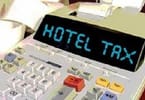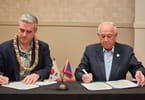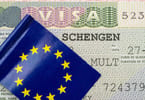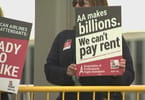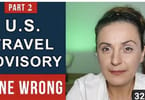When New York’s new tax on hotel room remarketers went into effect on Sept. 1, it put the onus on online travel companies, tour operators, wholesalers and travel agents to register for, calculate and file a tax that many of them had never before encountered in booking any other destination.
Moreover, their displeasure with the tax only grew as the city issued guidance on how to comply with it.
Paul Ruden, ASTA’s senior vice president for legal and industry affairs, called the city’s guidance “incomplete, incoherent and unacceptable.”
For example, Ruden said, “It tells people if they buy from other remarketers they have to apply a 15% markup on 70% of the average rate. Do you have any idea how a travel agent would figure that out? What’s an average room? I have no idea how travel agents could possibly comply with that rule, and the result is that they could get audited. This is no way to run a railroad.”
The hotel remarketers tax was signed into law by Mayor Michael Bloomberg on June 29 as an amendment to New York’s existing hotel occupancy tax. It requires resellers of New York hotel rooms to remit a tax based on the full amount paid by the customer as “a condition of occupancy,” including some service fees and charges.
According to the city finance department’s statement of audit procedure for the tax, not all service fees and charges associated with booking a hotel room will fall under the tax’s purview.
The document said an “agent assist fee,” or a fee paid when someone uses a “live operator” to book a room, was an example of a service fee not considered a condition of occupancy. It also stated that “customized package fees,” or fees for researching a hotel for a client as part of a “themed” package, would not be considered a condition of occupancy.
The city’s statement also attempted to explain how packagers should calculate the hotel portion of the package when the price of the individual components is known: “The taxable additional rent would be based on the ratio of the wholesale cost of the hotel room to the wholesale cost of all the components of the package multiplied by the total markup for the package.”
According to Owen Stone, a finance department spokesman, that formula is “based on an industry standard model already in use for air travel.”
Rose Hache, a travel lawyer who is a member of the bar in both New York and Texas, said, “I think that the tax is unfair and it’s unadministrable, and that there’s no way of knowing in advance the true amount of a transaction.”
Furthermore, she added, “I think it’s a violation of the commerce and due process clauses, which prohibit the imposition by a state of an extraterritorial sales tax. What we’ve got is New York City taxing a travel agent sitting in Houston, Indianapolis or San Francisco for a transaction, which is interstate commerce.”
Representatives of tour operators and other packagers also voiced concern.
“Up until now, all lodging taxes were pretty much collected by the hotels at the time the rooms were sold,” said Steve Richer, public affairs advocate for the National Tour Association. “If a tour operator in Arizona runs a tour in California, taxes are collected by the individual places they visit. They don’t have to go back and calculate tax they paid on the food they ate. The restaurant collects it.
“We’re looking at the expanding of the taxable event. That’s all new territory. And it raises a lot of questions, particularly for operators and others who are now [subject to this tax] who previously were not.”
Travel industry organizations are not only struggling to communicate to their members just how to abide by a tax that they don’t fully understand; they are also concerned that the New York reseller tax could trigger an ominous trend.
“People have lots of different things to learn if this is going to continue,” said Richer. “If this becomes a trend, then it becomes onerous, just overwhelmingly unbearable. If it becomes hundreds of jurisdictions to file taxes on various elements on a tour … just think of all the people one would have to employ to figure that out.”
Travel lawyer Mark Pestronk, who writes Travel Weekly’s Legal Briefs column, said the city didn’t understand the difference between markups in the merchant or agent model and online sales.
He said he hoped that major online agencies would start paying the tax and then “get clarifications and get definitive answers.”
Until then, Pestronk said, “The only prudent thing to do is to register and start collecting and remitting the tax on your service fees that cover hotel package fees. Here’s a good piece of advice: Consider charging a zero fee for the hotel portion of the bookings.”
Stone said any business that has questions about whether or not they are required to register should contact New York’s department of finance.
WHAT TO TAKE AWAY FROM THIS ARTICLE:
- Rose Hache, a travel lawyer who is a member of the bar in both New York and Texas, said, “I think that the tax is unfair and it's unadministrable, and that there's no way of knowing in advance the true amount of a transaction.
- “The taxable additional rent would be based on the ratio of the wholesale cost of the hotel room to the wholesale cost of all the components of the package multiplied by the total markup for the package.
- The document said an “agent assist fee,” or a fee paid when someone uses a “live operator” to book a room, was an example of a service fee not considered a condition of occupancy.







